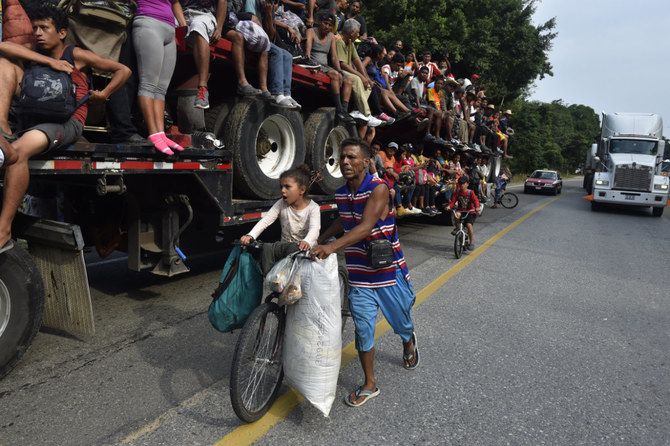SAO PAULO, Brazil: Among the thousands of migrants who try to reach the border between Mexico and the US every month, the presence of Muslims — most of whom leave African and Asian countries in search of a better future — is both conspicuous and constant.
There are no official figures about Muslim migrant flows through the Latin American route, but organizations that assist immigrants in the region report that their numbers have been rising.
They not only face the usual hardships of the journey north, such as the exploitation by coyotes, but also specific difficulties, including religious prejudice all along the way and obstacles concerning the observance of their faith.
One of the main gateways for Muslim immigrants and refugees in Latin America, Sao Paulo, has been receiving people from Southeast Asia, the Middle East and African countries over the past years.
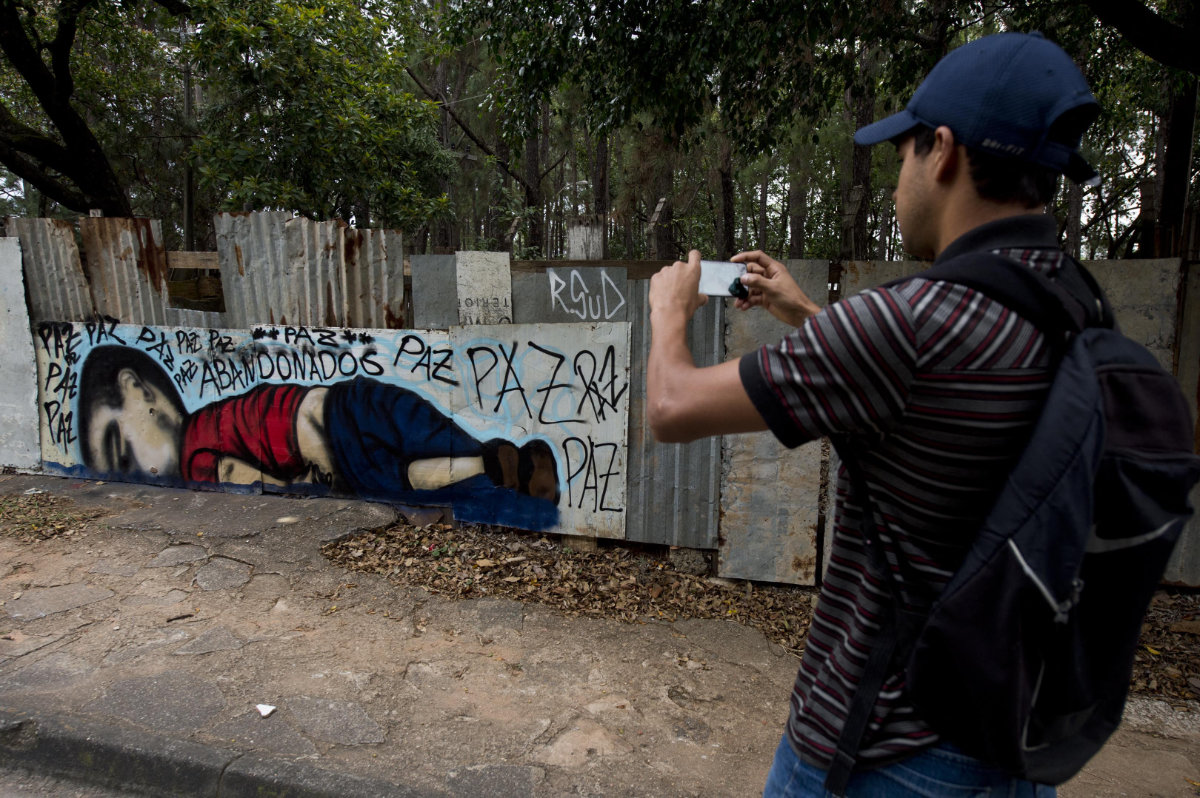
Graffiti in Brazil depicts Alan Kurdi, the Syrian boy who died in 2015 along with his family when their dinghy capsized. (AFP)
“I estimate that 20 percent of all people welcomed by us in 2020 were Muslim,” said Fr. Paolo Parise, who heads a Catholic immigrant center called Mission Peace in Brazil’s largest city.
Parise said that most of the Muslim foreigners assisted by the institution come from countries like Nigeria, Mali and Senegal, besides some groups from the Middle East.
“We have also recently welcomed people from Afghanistan,” he added.
These migrants and refugees have traditionally viewed Brazil as a country of transit, especially over the past five years, a period marked by economic decline and shrinking opportunities.
“They enter Brazil with tourist visas and later they request a refugee status,” Parise said.
After a few months, most of them try to get into the US, using the traditional routes used by Haitians, Venezuelans and other groups.
But every route abounds with obstacles and disappointments. As of July 2021, 70 percent of asylum requests made in Mexico were concentrated in the border town of Chiapas, which receives daily flights of people expelled from the US under Title 42 legislation.
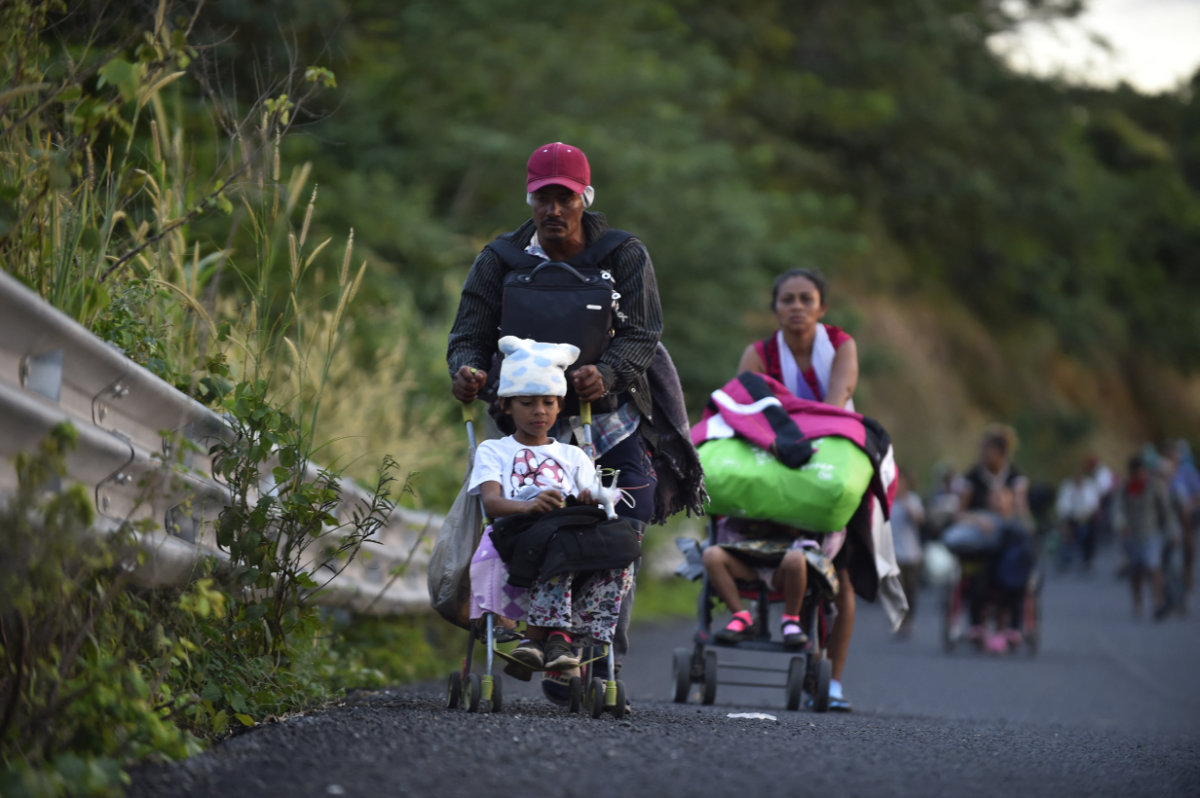
Migrants march on the Mexican capital, demanding ‘justice and dignity.’ (AFP)
The public health order, issued in March 2020 by the Trump administration, justifies the expulsions on the grounds that there is a communicable disease, namely COVID-19, in the migrant’s country of origin.
Consider the case of Ghanian-born Ahmed Usman, 34, now a resident in the Mexican city of Tijuana, on the border with the US. Usman lived in Brazil for one year and eight months.
“I worked in a factory in Criciuma (a city in the South of Brazil). After paying my rent and utilities and sending a bit of money to my family, I had no money left,” he told Arab News.
Criciuma has a small Muslim community, but Usman said he received more help from Christians.
In 2016, he decided to head to the US and began a long trip through Peru, Ecuador, Colombia, Panama, Costa Rica, Nicaragua and Guatemala, until he arrived in Mexico.
“We lacked money. We saw many people getting sick and dying along the trip,” he said, exhaustion and disbelief in his eyes.
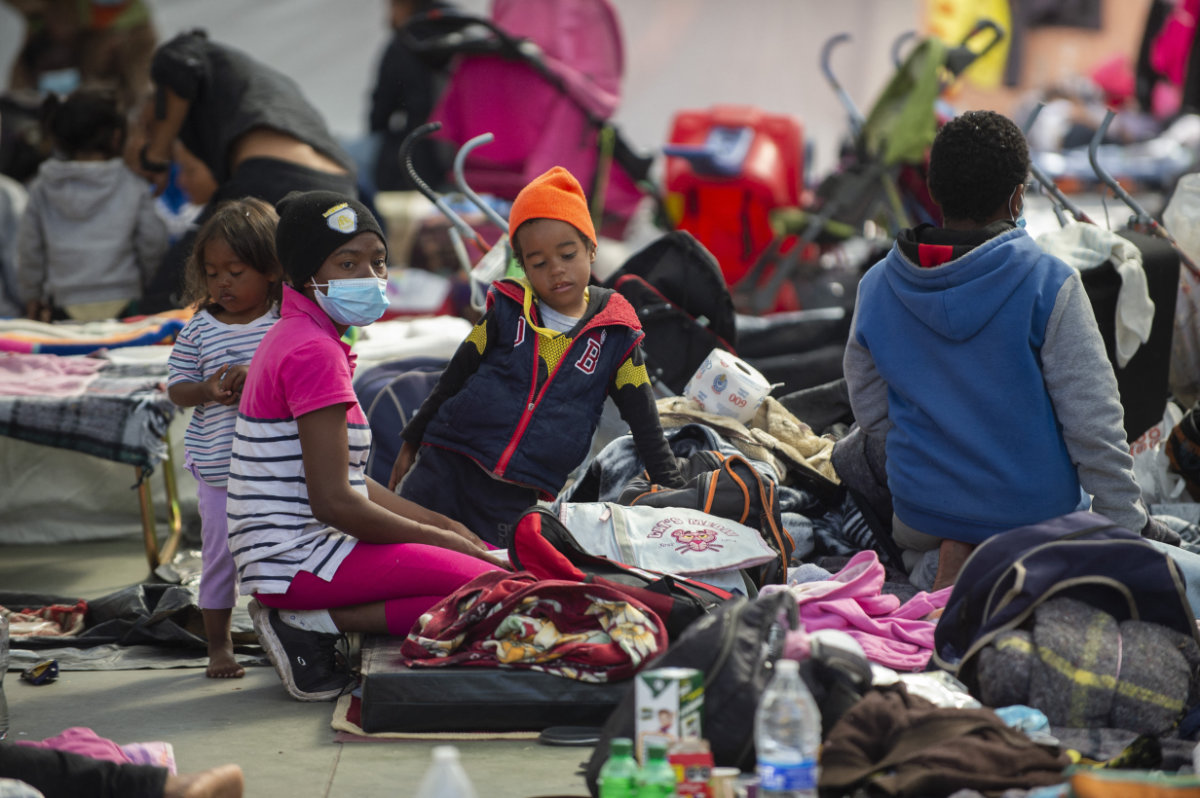
Migrants travel north in ‘caravans’ along dangerous routes through Latin and Central America. (AFP)
Usman spent eight months in Costa Rica, where he was helped by a Catholic church and a mosque in the city of San Jose.
“We were also helped by a man who would feed us many times. And he understood that we did not eat pork,” he said.
In 2017, he finally arrived in Mexico. He ended up finding work in Tijuana and has not tried to cross the border until now.
Usman’s story is similar to those of many other desperate people who head to Mexico, increasingly seen as a country of transit and asylum.
In 2014, 2,100 people arrived in the country to request refugee status; in 2019, that had risen to more than 70,000.
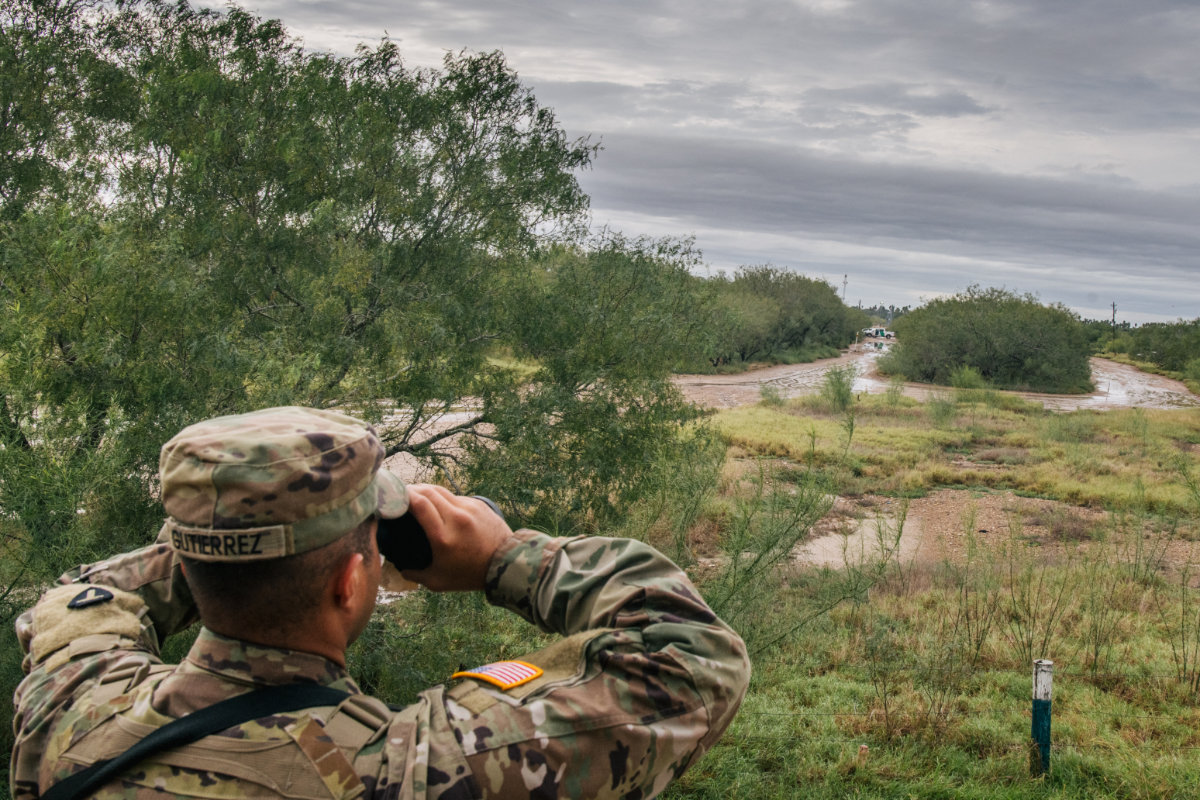
A US National Guard member keeps watch while on a border patrol operation in La Joya, Texas. (Getty Images via AFP)
The figures dropped in 2020, as travel restrictions imposed as a result of the COVID-19 pandemic slowed global migration but, between January and November 2021, the country received more than 123,000 asylum requests from people coming from the Caribbean and Central American and South American countries, such as Haiti, Honduras, Cuba, El Salvador, Chile, Venezuela, Guatemala, Nicaragua, Brazil and Colombia.
Usman’s narrative is also a good example of the plight of Muslim migrants along the Latin American route.
Most of them find little support among the Islamic community and must rely on the assistance given by Catholics or civic organizations.
“Most Muslim communities in the region see those immigrants as competitors or as a problem. Some of them have resources to help them but prefer to avoid what they see as trouble,” said Moroccan-born Sheikh Abderrahman Agdaou, who lives in El Salvador and has intervened in many immigrants’ cases in recent years.
On several occasions, Agdaou helped Uighur, Syrian and Iraqi refugees who lacked the necessary documents to continue travelling to the US, coordinating assistance with Catholic entities and the UN.
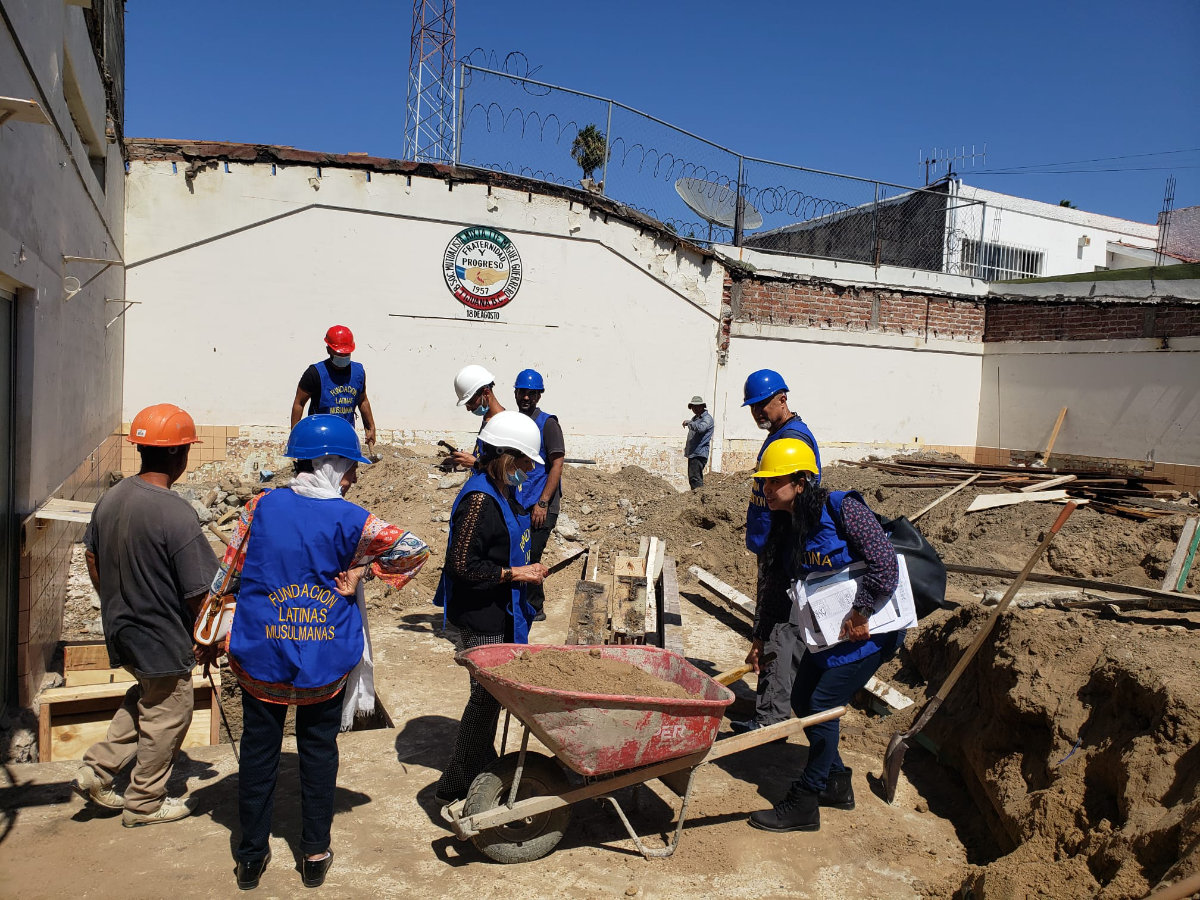
Members of the Latina Muslim Foundation building a shelter for migrants in Mexico. (Supplied)
He also had to give support to former Guantanamo prison inmates, who obtained refugee status in El Salvador thanks to his support.
“Once, a Syrian family with four children was taken to El Salvador by a coyote and was abandoned there at the airport. The person just disappeared, and they did not know what to do,” he said.
Agdaou said he intervened and assisted the family in going back to Syria.
FASTFACTS
As of July 2021, 70% of Mexico’s asylum requests were concentrated in the border town of Chiapas.
Chiapas receives daily flights of people expelled from the US under Title 42 public-health order.
Title 42 justifies expulsions on the grounds there is a communicable disease in the migrant’s country of origin.
According to him, Islamic organizations offer more support to immigrants and command more influence in relatively well-off countries with large Muslim communities, notably Brazil, Chile and Argentina.
“But in many countries, Muslims feel like they are foreigners and so they should not meddle in politics,” he said.
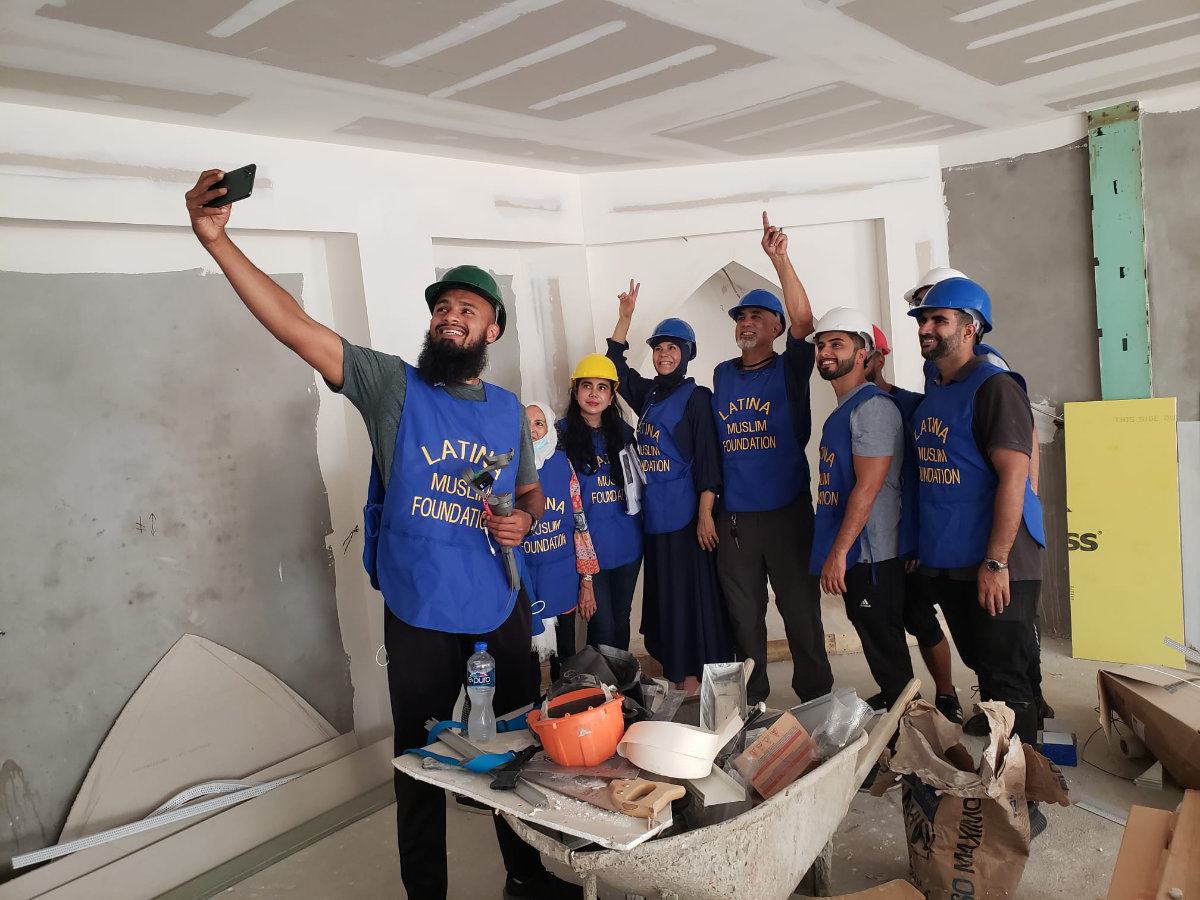
Members of the Latina Muslim Foundation take their time out for a selfie photo while working at a migrant center in Mexico. (Supplied)
Agdaou wants regional Islamic entities to improve the level of coordination between them and civic organizations that assist immigrants.
Other problems seem to be of a more serious nature. Some immigrants belonging to sub-Saharan countries reported that they felt discriminated against by Arab Muslims who head mosques in Latin American countries.
With so many difficulties, most Muslim immigrants end up looking to Catholic institutions for humanitarian assistance along the way.
“We do not welcome so many Muslims in Latin America as our European counterparts do in Europe, but a number of them continually pass by our shelters on the route to the US,” said Elvy Monzant, the executive secretary of the Catholic Church’s Latin American and Caribbean Network on Migration, Refugees and Human Trafficking.
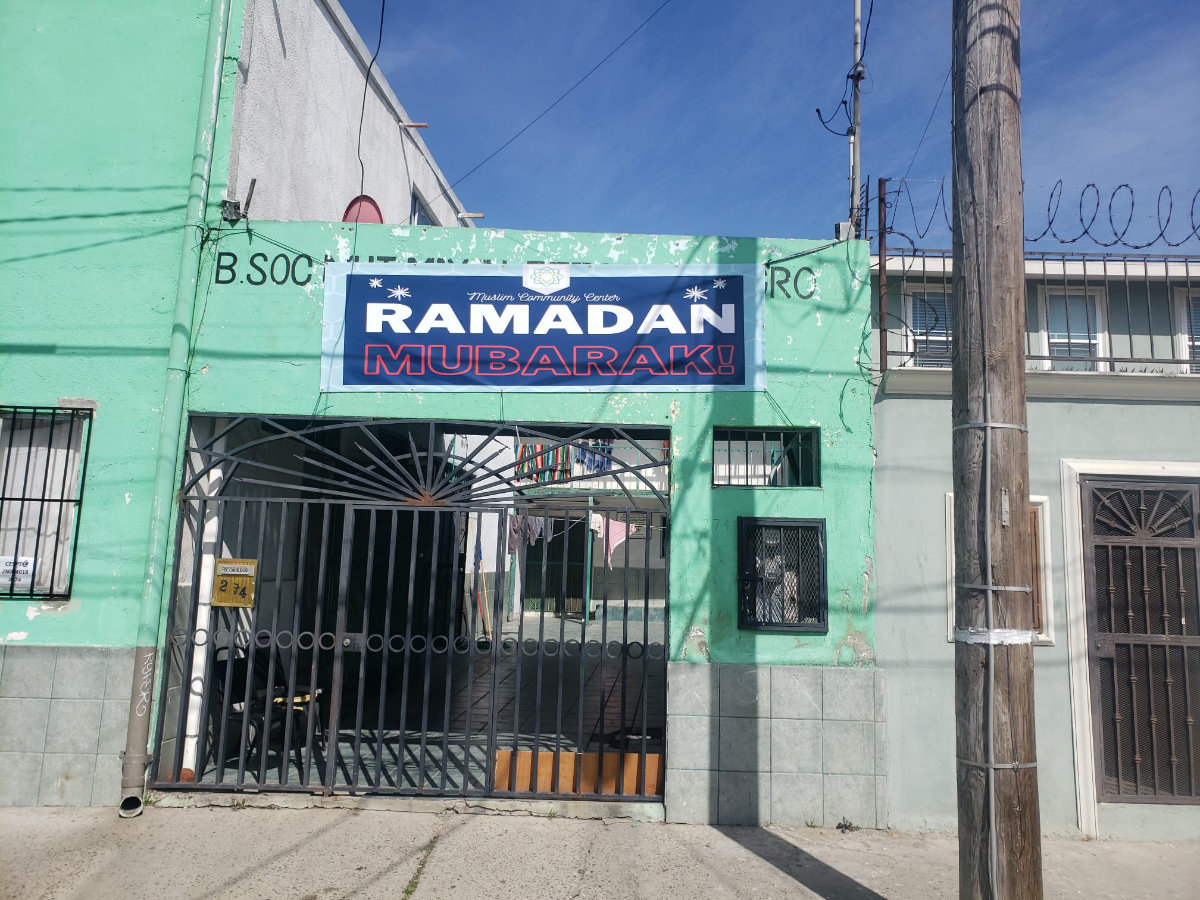
Muslim migrants are welcomed at a shelter in Tijuana, Mexico. (Supplied)
Monzant told Arab News that Catholic immigrant houses try to respect Islamic traditions and are happy to welcome Muslims.
Most of them are careful with food prohibitions and some of them even have special rooms for their prayers.
“But we might make unwanted mistakes in our work with them. So, places managed by the Muslim community could make them feel better,” Monzant said.


